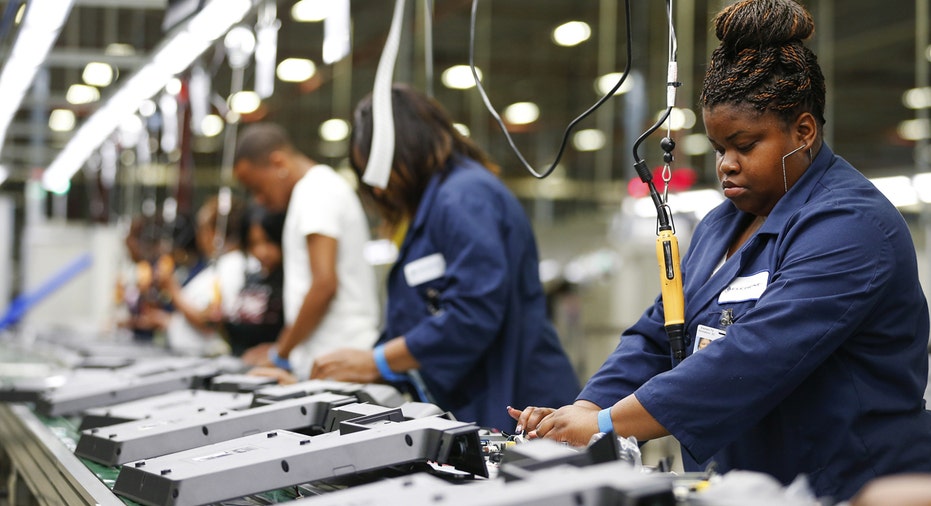Forecasters Lower Growth Outlook as Hopes for Quick Stimulus Fade

A growing number of forecasters are beginning to reconsider their bullish outlook for the U.S. economy as doubts grow over the extent to which President Donald Trump will be able to implement his agenda.
The prospect of single-party control of Congress and the White House, coupled with campaign promises to overhaul the health-care system, simplify the corporate tax code and launch a major infrastructure package had sent optimism about the U.S. economy soaring in recent months. Following the election, respondents to The Wall Street Journal's monthly survey of forecasters significantly raised their estimates for growth, inflation and interest rates.
But the collapse of the initiative to "repeal and replace" President Barack Obama's signature health-care law last month underscored deep divisions in the Republican Party. They could make it difficult to reach consensus on initiatives that could provide economic stimulus, such as lower corporate taxes or federal funding for infrastructure.
"Many people still remain too invested in Trump's campaign promises of a large fiscal stimulus program," said Bernard Baumohl, chief economist of the Economic Outlook Group. "But as time passes, the lack of follow-through will turn that optimism into disappointment, if not outright skepticism."
Growth forecasts for the first quarter have come down. In December, the average forecast called for 2.3% growth in the first quarter. That had fallen to 1.9% in March and dipped again to 1.4% in this month's survey.
Fewer forecasters are now banking on a large push from Congress. In January, 71% of economists in the Journal's survey were including significant fiscal policy changes in their forecasts. In April, that number was down to 44%. A majority now say "significant" changes are unlikely, although many said a small fiscal boost remains possible.
"It is entirely debatable how stimulative any tax program will ultimately be," said Constance Hunter, chief economist of KPMG. In addition, how quickly such a program would come together remains unclear. "The timing of a tax overhaul in 2018 is still up in the air, meaning it is unwise to incorporate into forecasts just yet," she said.
In an interview with The Wall Street Journal this week, Mr. Trump said he intended to finish dealing with health care before releasing guidelines for lawmakers to write tax legislation.
Forecasts for the pace of job growth have also dipped in The Wall Street Journal's survey. The forecasters now see 169,000 jobs a month added in the year ahead, down from 187,000 in last month's survey. That downgrade owes, in part, to the Labor Department's employment report for the month of March, which showed the economy adding 98,000 jobs.
Expectations for growth and jobs have been tempered, and many economists believe consumer sentiment is likely to come down, too. After the election, consumer confidence, especially among Republican voters, had soared. Only about 10% of economists believe sentiment will stay elevated. A majority of 53% said the economy would improve somewhat, but not enough for sentiment to remain so high.
There was "undue optimism regarding the speed at which Washington, D.C., can move," said Michael Fratantoni, chief economist of the Mortgage Bankers Association.
For the first time since the election, fewer than 50% of economists saw upside risks to their economic forecasts. "Upside risk" is the term forecasters use when they're worried their forecast will be wrong because the economy does even better than they estimated.
In April, 46% of forecasters saw greater upside risks, compared with 62% last month. Odds of a recession in the next 12 months climbed slightly, too -- to 16% from 14% last month. (Though worse than last month, both measures remain improved compared with before the election.) A similar downward reappraisal has occurred in the stock market. After closing above 21000 on March 1, the Dow Jones Industrial Average has declined over 500 points.
"Markets may become increasingly sensitive to the lack of traction on policy promises over 2017," Derek Holt of Scotiabank said.
The survey of 61 financial, academic and business economists was conducted from April 7 to April 11. Not every economist answered every question.
Write to Josh Zumbrun at Josh.Zumbrun@wsj.com



















